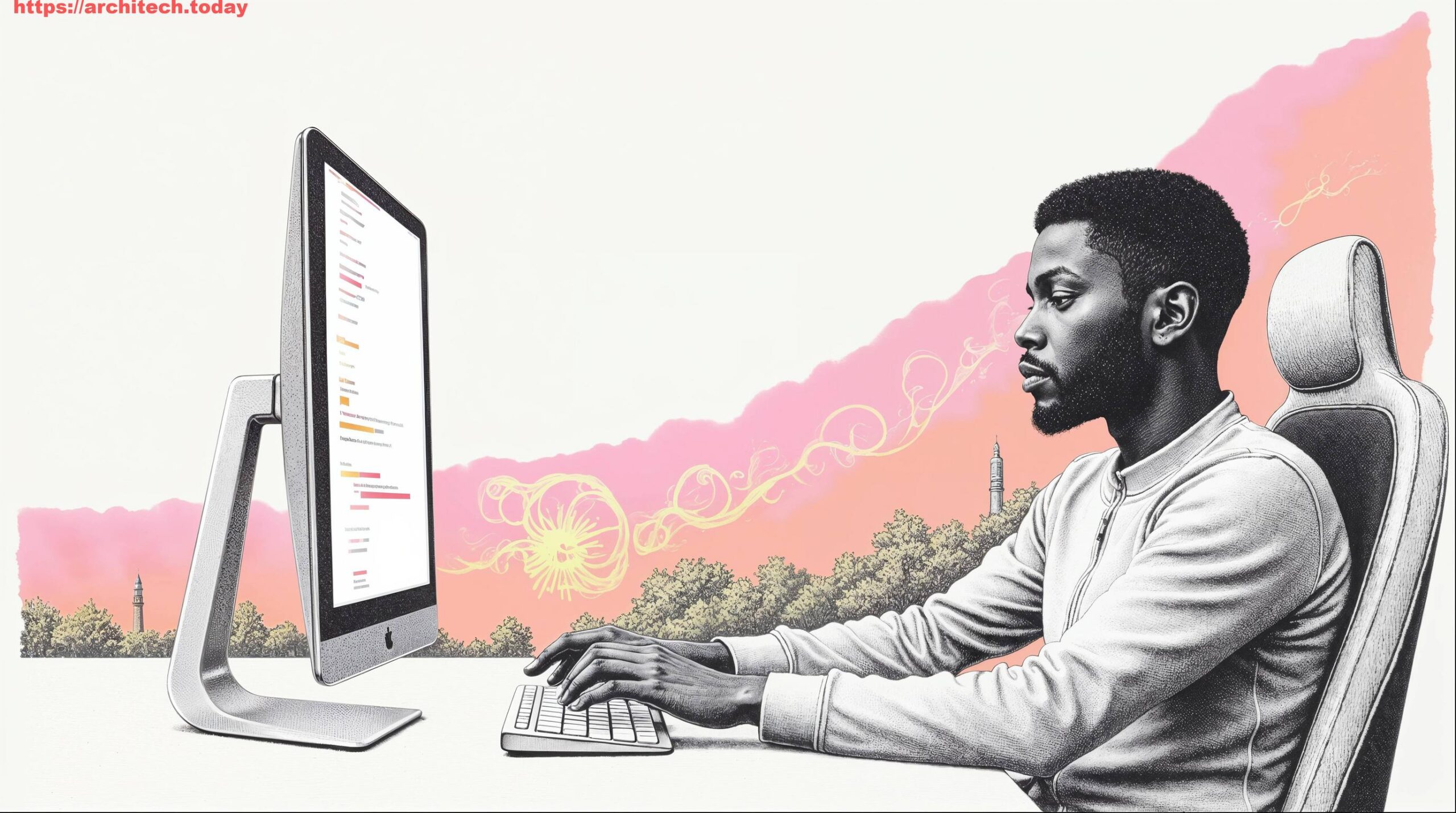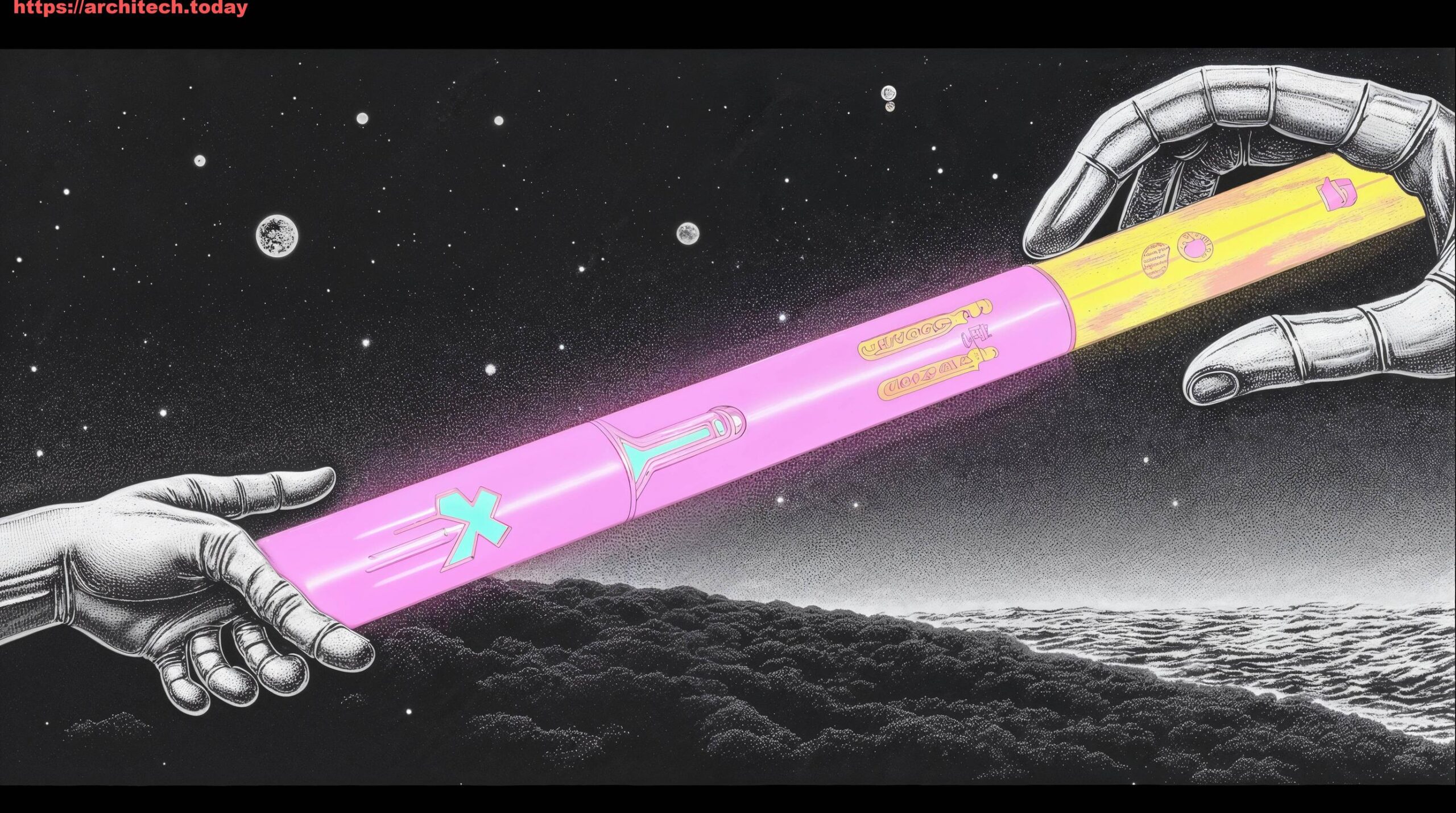The Future of Project Management: Will AI Lead the Way, or Just Lend a Hand?
Imagine it’s 2025. You wake up, grab your coffee, and before you’ve even had your first sip, your AI assistant has already outlined your project’s critical path for the day, highlighted potential bottlenecks based on predictive analytics, and even drafted initial responses to a handful of stakeholder emails. Sounds like science fiction, doesn’t it? Yet, elements of this scenario are not just on the horizon; they are already here. The question echoing through boardrooms and project offices alike isn’t if Artificial Intelligence will impact project management, but how profoundly. In 2030, is your project manager a human, an AI, or a bit of both?
This thought-provoking question is at the heart of a debate that’s reshaping the future of work. Will AI eventually automate so much that the traditional project manager role changes drastically, or even disappears entirely? While the allure of fully autonomous, AI-driven projects with minimal human oversight is a tempting vision for efficiency, it also sparks understandable anxiety among the human professionals who dedicate their careers to bringing complex projects to fruition. This article aims to explore both sides of this fascinating coin, offering a balanced perspective on AI’s capabilities and limitations, and ultimately, providing insights into how project managers and business leaders can not only adapt but thrive in this evolving landscape. We’re here to offer reassurance through insight: yes, things will change; no, you (the human) aren’t going away – here’s how you remain valuable.
The AI Evolution in Project Management: Today’s Landscape
The notion of AI in project management isn’t a future concept; it’s a present reality. Today, AI-powered tools are already diligently working behind the scenes, tackling the more data-intensive and repetitive tasks that once consumed a significant portion of a project manager’s day. Think about the initial drudgery of project setup: creating detailed schedules, allocating resources, tracking budgets, and generating performance reports. These are areas where AI truly shines.
For instance, sophisticated algorithms can analyze historical project data, predict task durations with greater accuracy, and identify optimal resource allocation strategies faster than any human. AI tools can monitor project progress in real-time, flagging deviations from the plan and suggesting corrective actions before they escalate into major issues. This isn’t just about speed; it’s about leveraging vast datasets to derive insights that are often beyond human cognitive capacity. Companies are using AI to automate the generation of status reports, compile compliance documentation, and even forecast future project trends, significantly reducing administrative overhead. This frees up project managers to focus on higher-value activities that demand human intuition and interaction. It’s like upgrading from a dial-up modem in a 5G world – the old way worked, but the new way is exponentially more efficient and insightful.
The efficiency gains are not merely theoretical. Industry reports increasingly highlight how organizations leveraging AI for project management tasks report improvements in project success rates and adherence to budgets. While specific global statistics are still emerging, individual case studies often show significant reductions in planning time and an uplift in forecast accuracy. This current wave of AI integration is laying the groundwork for more advanced applications, transforming the project manager from a meticulous taskmaster into an informed orchestrator, equipped with unparalleled data-driven insights.
Project Management in 2030: A Glimpse into the AI-Powered Future
Fast forward a few years to 2030, and the capabilities of AI in project management are set to expand dramatically. Picture a project status meeting. Instead of a human PM meticulously going through Gantt charts, an AI might present a real-time, holographic projection of project progress, complete with predictive risk assessments, alternative solutions to emerging problems, and even simulations of different strategic pivots. We could see the emergence of fully autonomous agile sprints, where AI bots manage backlogs, assign tasks, track progress, and even facilitate daily stand-ups, optimizing workflows without direct human intervention.
Consider a product manager using AI to prioritize a feature backlog. Instead of relying solely on subjective feedback and limited market research, an AI could analyze millions of data points from user behavior, market trends, and competitive landscapes, providing an objective, data-backed prioritization of features that maximize value and minimize risk. Similarly, a project manager could leverage predictive tools that don’t just identify potential delays but proactively model their impact across the entire project ecosystem, suggesting preventative measures before a single task goes off track. This is more than just automation; it’s proactive, intelligent management.
The opportunities here are immense: faster delivery cycles, significantly reduced costs, and decision-making elevated by an unprecedented level of data and foresight. AI could handle everything from initial project ideation by synthesizing market needs to post-mortem analysis, identifying success factors and lessons learned with unbiased precision. However, this future also presents potential pitfalls. Over-reliance on AI without critical human oversight could lead to a loss of nuanced understanding or the propagation of algorithmic biases. What if the data used to train the AI has inherent biases, leading to skewed resource allocation or inaccurate risk assessments? The challenge for leaders will be to harness AI’s power while maintaining ethical guardrails and a robust human review process, ensuring that technology serves humanity, not the other way around.
The Irreplaceable Human Element: Where AI Falls Short
Despite the breathtaking advancements in AI, there’s a collective sigh of relief for project managers: the rise of our robot overlords as project managers has been greatly exaggerated. While AI excels at processing data, identifying patterns, and executing logical steps, it fundamentally lacks the nuanced human attributes that are the bedrock of successful project leadership. This is where the human project manager truly shines and remains irreplaceable.
Consider the realm of leadership. An AI can optimize a schedule, but can it inspire a demoralized team? Can it mediate a heated conflict between stakeholders with conflicting agendas? Can it rally a team around a bold vision, fostering a sense of shared purpose and excitement? The answer, unequivocally, is no. Leadership is not merely about execution; it’s about influence, motivation, and the ability to navigate complex human dynamics. Empathy, for instance, allows a project manager to understand the unspoken anxieties of a team member or the unarticulated concerns of a key stakeholder. This emotional intelligence enables proactive problem-solving that goes beyond technical fixes.
Creativity is another distinctly human trait. While AI can generate permutations of solutions, genuine innovation often springs from lateral thinking, intuition, and the ability to connect seemingly disparate ideas – a cognitive leap that AI struggles to replicate. Strategic thinking, too, requires more than just processing data; it demands foresight, an understanding of complex geopolitical and economic landscapes, and the ability to define a compelling vision that aligns with broader organizational goals. An AI can tell you the most efficient path, but a human leader defines the destination and inspires the journey. Negotiation, stakeholder management, and team motivation are all deeply human endeavors that rely on subtle cues, emotional intelligence, and the ability to build trust and rapport – skills far beyond the current (and foreseeable) capabilities of even the most advanced AI.
The Evolved PM: Orchestrator, Motivator, and Strategist
So, if AI is taking over the grunt work, what does that leave for the human project manager? Far from becoming obsolete, the role is evolving, transforming into something far more strategic, impactful, and, dare we say, human. The project manager of the future will less be a taskmaster meticulously tracking every deliverable and more of a strategic orchestrator, a chief motivator, and a visionary leader. Their value will lie in their ability to harness AI as a powerful co-pilot, not as a replacement.
Imagine your future self, equipped with an AI that handles all the scheduling, risk analysis, and resource allocation. Your new focus shifts dramatically. You’re now the curator of AI insights, interpreting complex data analyses to extract actionable strategies that align with human goals and values. You’re the guide, leading cross-functional teams through ambiguous territories, ensuring seamless collaboration, and fostering a culture of innovation. Your time is freed up to engage in high-level strategic planning, identifying emerging opportunities, and preempting challenges that require human intuition and foresight. Instead of spending hours updating Gantt charts, you’re building relationships, mentoring team members, and refining the project’s strategic direction.
This evolved role demands a different skill set: exceptional communication to translate AI’s complex outputs into understandable narratives, heightened emotional intelligence to manage team morale and stakeholder expectations, and robust strategic thinking to integrate project outcomes with the broader organizational vision. As PMI’s latest reports often suggest, the future PM will be a “change agent” and a “strategic business partner,” skills that are profoundly human. The human-AI synergy isn’t about one replacing the other; it’s about amplifying human potential. AI handles the logic and data; humans provide the leadership, the empathy, and the vision that truly drive successful outcomes.
Future-Proofing Your Project Management Career in the AI Era
The good news is that the future of project management, far from signaling the end of the human PM, presents an incredible opportunity for growth and redefinition. To thrive in this evolving landscape, project managers must proactively adapt and “future-proof” their careers. This means embracing AI as a powerful ally, not a formidable opponent.
Firstly, understand and leverage AI tools. Familiarize yourself with AI-powered scheduling software, predictive analytics platforms, and automation tools. Think of it as mastering a new, incredibly powerful set of project management instruments. The more you understand their capabilities, the better you can direct them to serve your projects. Secondly, and perhaps most crucially, hone your uniquely human skills. These are the competencies that AI cannot replicate: emotional intelligence, leadership, creative problem-solving, strategic thinking, and complex stakeholder communication. Invest in developing your abilities to inspire, motivate, negotiate, and build consensus. These will be your superpowers in an AI-augmented world.
For example, if an AI predicts a potential project delay, your human skill set comes into play to understand the root cause (Is it a team morale issue? A breakdown in cross-functional communication? A poorly managed external vendor?), negotiate a new timeline, and re-motivate the team, all while managing stakeholder expectations. Industry experts, including those from Gartner and the Project Management Institute (PMI), consistently emphasize that the future PM will be distinguished by their strategic acumen and their ability to lead human teams effectively in an increasingly data-driven environment. Continuous learning will be paramount. Stay updated on AI advancements, but equally, invest in courses and experiences that enhance your leadership, negotiation, and emotional intelligence skills. By focusing on these areas, you transform from a task manager into an indispensable strategic asset, guiding your organization through the complexities of the future with confidence and vision.
Conclusion
The journey into the future of project management is undoubtedly transformative, shaped by the incredible advancements in artificial intelligence. What’s clear is that the narrative isn’t one of replacement, but rather of profound evolution. AI is rapidly becoming an indispensable partner, automating the mundane, predicting the unforeseen, and augmenting our decision-making with unparalleled data insights. This shift liberates human project managers from the shackles of repetitive tasks, allowing them to ascend to roles that demand their uniquely human capabilities: leadership, empathy, creativity, and strategic foresight.
The project manager of 2030 will be less of a task enforcer and more of a strategic orchestrator, a chief motivator, and a visionary who can navigate the complex interplay between human talent and artificial intelligence. The anxieties surrounding AI’s impact on careers are valid, but they are also an invitation to grow and redefine what it means to lead projects. By embracing AI, understanding its power, and relentlessly cultivating our human strengths, we don’t just future-proof our careers; we elevate the entire profession. So, as we stand on the precipice of this exciting new era, how are you preparing to lead your next project—and your team—into a future where human ingenuity and AI intelligence coalesce for unprecedented success?








No comment yet, add your voice below!